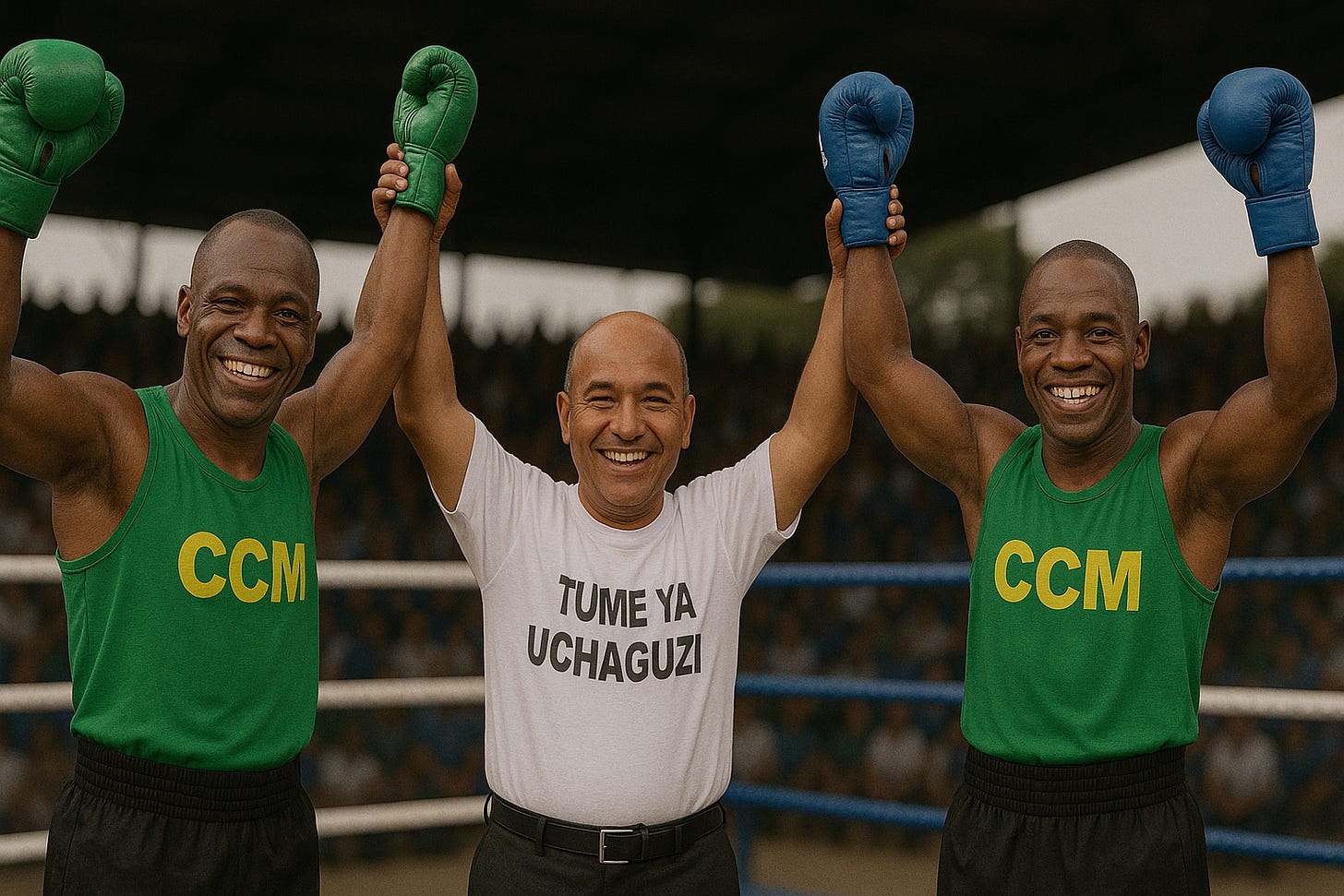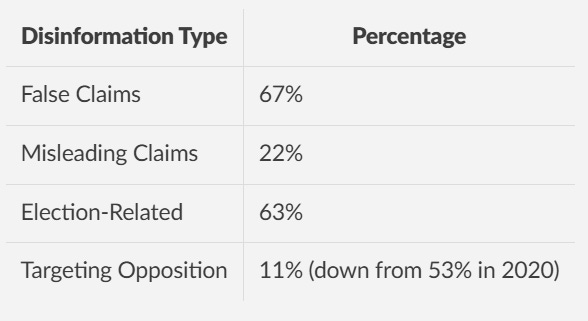Disinformation in Tanzania’s 2025 One-Horse Race: How Digital Deceit Sustains an Election Without Viable Opposition

Ujasusi Blog’s East Africa Monitoring Team | 29 September 2025 | 0000 BST
As Tanzania approaches its 29 October 2025 general election, the country is awash with digital falsehoods—but this cycle is different: the main opposition CHADEMA has been barred from the ballot, its national chair Tundu Lissu is in jail on treason charges, and the party’s “No Reforms, No Election” stance has been criminalised by court injunction. With no major challenger on the ticket, disinformation has mutated from inter-party mud-slinging into a ruling-party monopoly on truth.
This article unpacks the disinformation trends defining Tanzania’s 2025 electoral cycle, drawing on real-time data, expert analysis and comparative insights from Kenya’s 2022 and Nigeria’s 2023 elections. It shows how state-sponsored propaganda, AI-generated deepfakes, foreign influence operations and ethno-religious narrative engineering are weaponised when no counter-voice is allowed on the ballot.
1. The Anatomy of Disinformation in an Opposition-Free Election
1.1 Scale and Scope: What the Data Says
A JamiiCheck audit covering January–June 2025 found 67% of 192 fact-checked claims were false and 22% misleading. Crucially, only 11% of fake content targeted opposition parties—down from 53% in 2020—because CHADEMA is off the ballot. Instead, deepfakes of low-tier CCM rivals and fabricated exposés of internal ruling-party factions now dominate the cycle.


